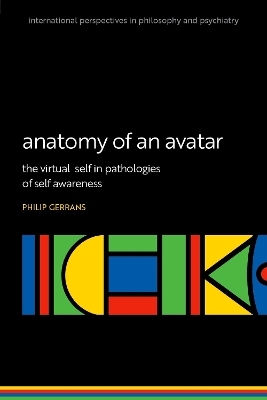
Anatomy of an Avatar
The virtual self in pathologies of self awareness
Seiten
2024
Oxford University Press (Verlag)
978-0-19-888664-8 (ISBN)
Oxford University Press (Verlag)
978-0-19-888664-8 (ISBN)
This book applies a powerful framework in computational neuroscience (predictive coding and active inference) to explain psychiatric disorders that are characterised by pathologies of self-awareness. It shows how the self is best conceived of as an avatar or model made by the brain for the fundamental purpose of optimising basic bodily function. That avatar integrates and coordinates neurocomputation across the mind. It allows the mind to anticipate and respond to sensory information that bears on the organism’s prospects. The self is thus a model (avatar) made by the brain to allow the body to play the game of life. When activity in circuitry that implements the avatar is compromised a variety of psychiatric disorders result.
Anatomy of an Avatar provides a theoretical framework for theories of embodied selfhood anchored in homoestatic regulation, as well as exploring psychiatric disorders involving the self and the empirical application of concepts of free energy minimisation, active inference and predictive processing. The book also includes key case studies in the cognitive neuropsychiatry of self awareness and test cases for philosophical concepts of self representation and the experience of self awareness.
The book will be essential reading for those in the fields of psychology and consciousness, psychiatry, and philosophy.
Anatomy of an Avatar provides a theoretical framework for theories of embodied selfhood anchored in homoestatic regulation, as well as exploring psychiatric disorders involving the self and the empirical application of concepts of free energy minimisation, active inference and predictive processing. The book also includes key case studies in the cognitive neuropsychiatry of self awareness and test cases for philosophical concepts of self representation and the experience of self awareness.
The book will be essential reading for those in the fields of psychology and consciousness, psychiatry, and philosophy.
Philip Gerrans is a Professor of Philosophy at the University of Adelaide. His work is at the intersection of psychiatry neuroscience and philosophy. He has written on developmental disorders, the emotions, delusions, disorders of self awareness, psychedelic experience and dreams. A unifying theme is the explanatory role of neurocomputational theory.
1: Allostatic Active Inference
2: Material me: Embodiment and self awareness
3: Pain and the avatar
4: Depersonalisation
5: A vessel without a pilot: The Cotard delusion
6: Ego dissolution in psychedelic experience
7: The social self
8: Alienation and identification in addiction
9: Engineering empathy: Emotion and self representation in artificial intelligence
| Erscheinungsdatum | 10.09.2024 |
|---|---|
| Reihe/Serie | International Perspectives in Philosophy and Psychiatry |
| Verlagsort | Oxford |
| Sprache | englisch |
| Maße | 166 x 245 mm |
| Gewicht | 378 g |
| Themenwelt | Geisteswissenschaften ► Psychologie ► Allgemeine Psychologie |
| Geisteswissenschaften ► Psychologie ► Psychoanalyse / Tiefenpsychologie | |
| Geisteswissenschaften ► Psychologie ► Test in der Psychologie | |
| Geisteswissenschaften ► Psychologie ► Verhaltenstherapie | |
| ISBN-10 | 0-19-888664-0 / 0198886640 |
| ISBN-13 | 978-0-19-888664-8 / 9780198886648 |
| Zustand | Neuware |
| Informationen gemäß Produktsicherheitsverordnung (GPSR) | |
| Haben Sie eine Frage zum Produkt? |
Mehr entdecken
aus dem Bereich
aus dem Bereich
Techniken der Verhaltenstherapie
Buch (2024)
Julius Beltz GmbH & Co. KG (Verlag)
35,00 €


